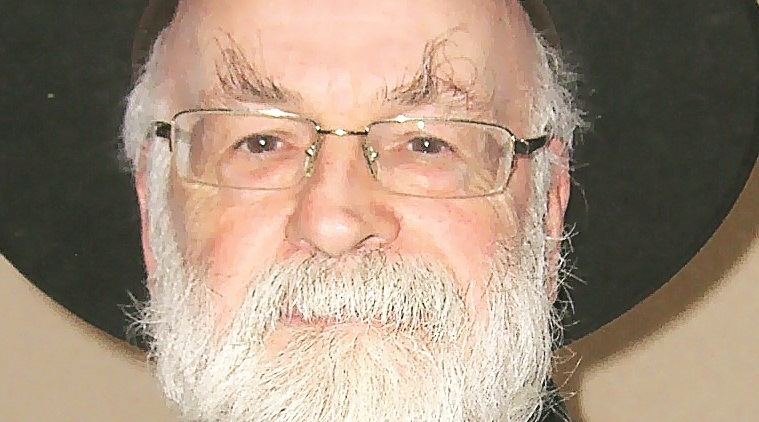The author has left the building: Terry Pratchett died as he had lived, on his own terms
The Discworld has finally spun down, with Terry Pratchett’s 41st and last novel, The Shepherd’s Crown, out in the UK and US. It was released six months after tweets from Pratchett’s account announced his death.
 Author Terry Pratchett
Author Terry Pratchett
The Discworld has finally spun down, with Terry Pratchett’s 41st and last novel, The Shepherd’s Crown, out in the UK and US. It was released six months after tweets from Pratchett’s account announced his death. They read like an alternative ending to his novel Mort, in which Death is a rather lively presence, having played a peripheral role in the first three books of the series. Death: “At last, Sir Terry, we must walk together.” “Terry took Death’s arm and followed him through the doors and on to the black desert under the endless night.” And then: “THE END.”
But it was semi-final. Pratchett’s spirit lived on for a spell in the mass of unfinished work that he left behind. The most imaginative writers often leave behind many more beginnings than endings, as their attention ricochets restlessly in a welter of fascinating ideas. It appears that The Shepherd’s Crown is the only one which Pratchett brought to any point near a conclusion before, tragically, he lost the plot. Hopefully, Discworld will now be frozen like a snapshot and enter the pages of literary history, and Pratchett’s estate will resist publishers who pray that it is turned into a co-written franchise which survives rigor mortis, the sun going nova and everything else. That’s the fate of almost every successful writer of airport thrillers, which is perfectly all right since that genre deserves no better, but literature is a different matter.
Assuredly, Discworld is literature. High literature, even. Writers with a light touch have the misfortune of being hugely popular in their lifetime but dismissed as insubstantial after the event. Few escape this fate, unless their work is not restricted to their times but to ideas of enduring interest. George Mikes and PG Wodehouse live on because they show what it means to be English. Even the English, and particularly the English, have no idea what makes them English, so these are useful clarifications.
[related-post]
In Bengali, Sukumar Ray, Satyajit Ray’s father, a polymath who died young, lives on in the unlikely form of volumes of children’s verse which are actually brilliant social satire. They are still published in industrial quantities by numerous houses, with and without permission and are regarded as foundational elements of a well-rounded education.
Pratchett conceived the Discworld series as a parody of mainstream fantasy, sending up its most enduring devices, tropes, settings and characters, but slantwise and sort of widdershins. He must have been amused to see his work become the new mainstream, an event rare in fantasy and science fiction, though parody flourishes in these genres.
For instance, Edgar Rice Burroughs’ Mars novels used to be parody magnets when they were widely read in the 20th century thanks to their noble savagery and the underdressed protagonists depicted in cover art. Parodies used to appear in science fiction magazines but of the huge body of work, the only one that I can remember is a tiny wonder, no more than two pages long, depicting a horseback chase sequence on Mars, from the age of swords and bucklers. The hero and a lavishly under-dressed princess race for their fortress but the bad guys are overhauling them, inexorably closer ever time they look over their shoulders, until it is clear that they will be caught just inches short of sanctuary. The leader of the bad boys raises his sword and whoops in anticipation of triumph. Whereupon the protagonist mutters, “Ah, the hell with it!” And he draws a pistol from his robes and shoots him unsportingly. This sort of thing used to be so commonplace that I don’t even remember who wrote this particular instance.
But in the hands of Pratchett, parody rose to define what is human. Like, two hungry characters gaze upon a large mushroom growing in the forest, and one wonders if they can eat it. No, says the other. Because it could be poisonous? No, on account of the little door and windows set into the mushroom. Death claims all in the end, and Pratchett regarded it, with complete equanimity, as the natural conclusion of life: “It is often said that before you die your life passes before your eyes. It is in fact true. It’s called living.” Undoubtedly, he died as he had lived, on his own terms, and doing what he liked best. It is normal to lose one’s life if it is well lived, but a man who could write about a mushroom in that fashion did not deserve to lose his mind, too.



- 01
- 02
- 03
- 04
- 05
























